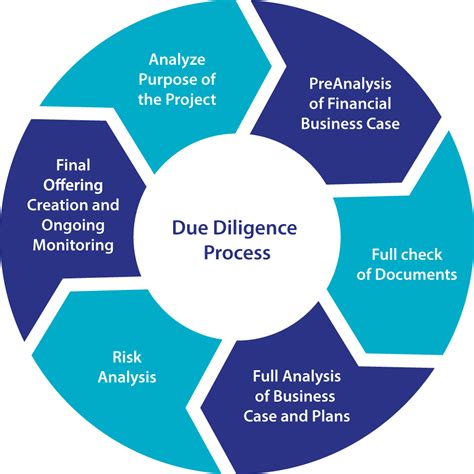Search Fund Due Diligence: Avoid Costly Mistakes
Finding the right business to acquire is the cornerstone of a successful search fund. However, the due diligence process is where many search funds stumble, leading to costly mistakes and ultimately, failed acquisitions. Thorough and meticulous due diligence isn't just about ticking boxes; it's about uncovering hidden risks and validating the investment thesis. This article will explore crucial aspects of search fund due diligence, highlighting common pitfalls and providing actionable strategies to mitigate them.
What is Search Fund Due Diligence?
Search fund due diligence is the rigorous investigation undertaken by a search fund to validate the financial health, operational efficiency, and overall viability of a target company before committing to an acquisition. It's a far more extensive process than a typical due diligence phase for a larger firm, given the significant personal investment and potential for unlimited liability involved. This meticulous process involves scrutinizing every aspect of the business, from financial statements to customer relationships and legal compliance.
Common Mistakes in Search Fund Due Diligence
Many search fund managers make critical errors during due diligence, often stemming from a lack of experience, time constraints, or a rushed acquisition process. These mistakes can range from overlooking crucial red flags to misinterpreting financial data. Let's delve into some common pitfalls:
1. Insufficient Financial Analysis: Ignoring Red Flags
People Also Ask: What are the key financial metrics to focus on during search fund due diligence?
This is a crucial question. Key financial metrics include revenue growth, profitability (EBITDA, net income), cash flow, debt levels, working capital management, and customer concentration. Don't just rely on historical data; critically analyze trends, seasonality, and the underlying drivers of performance. Look for inconsistencies, unusual patterns, or any deviations from industry benchmarks. Consider performing scenario analysis to understand the impact of potential economic downturns or changes in the competitive landscape.
2. Neglecting Operational Due Diligence: Underestimating Operational Risks
People Also Ask: How do I assess the operational efficiency of a target company during due diligence?
Operational due diligence involves assessing the efficiency and effectiveness of the target's operations. This includes reviewing processes, evaluating the management team, assessing employee morale and retention, and analyzing supply chain risks. Are there significant dependencies on key personnel? Are there outdated systems or inefficient processes? Conducting site visits, speaking with employees (confidentially if necessary), and benchmarking against competitors can provide invaluable insights. Failing to delve deeply into this area can result in unforeseen operational challenges post-acquisition.
3. Inadequate Legal and Regulatory Review: Uncovering Legal Issues Too Late
People Also Ask: What are the most important legal aspects to investigate during search fund due diligence?
Thorough legal due diligence is paramount. This involves reviewing contracts, intellectual property rights, compliance with environmental regulations, and potential litigation. Engage experienced legal counsel specializing in mergers and acquisitions (M&A) to navigate these complexities. Overlooking potential legal liabilities can be extremely costly.
4. Insufficient Customer and Market Research: Misjudging Market Demand
People Also Ask: How can I validate the market opportunity for a target company during due diligence?
Understanding the target's market position and customer base is crucial. Conduct comprehensive market research to assess market size, growth potential, and competitive dynamics. Talk to customers directly to gauge their satisfaction and loyalty. This will help you understand the underlying demand for the target's products or services. Failure to validate the market opportunity can lead to an overvalued acquisition.
5. Ignoring Cultural Fit: Underestimating Integration Challenges
People Also Ask: How important is cultural due diligence in a search fund acquisition?
Cultural fit is often overlooked, yet it is a critical factor for successful integration. Observe the company culture firsthand, talk to employees, and assess alignment with your management style and values. A clash of cultures can significantly hinder post-acquisition integration and lead to employee turnover.
Mitigating Risks and Ensuring a Smooth Acquisition
To avoid these costly mistakes, proactive measures are essential:
- Develop a comprehensive due diligence plan: This plan should outline the scope of due diligence, timelines, and responsibilities.
- Assemble a skilled team: Leverage your network and engage external experts as needed, including accountants, lawyers, and industry consultants.
- Allocate sufficient time and resources: Don't rush the process. Thorough due diligence takes time and careful consideration.
- Seek independent verification: Don't solely rely on information provided by the seller. Verify all data from multiple independent sources.
- Negotiate appropriate contingencies: Include appropriate contingencies in the purchase agreement to protect your investment in case of unforeseen issues.
By following these strategies and meticulously addressing each aspect of due diligence, search fund managers can significantly reduce the risk of costly mistakes and increase their chances of a successful acquisition. Remember, due diligence is an investment in the future success of your search fund. Don't skimp on it.

